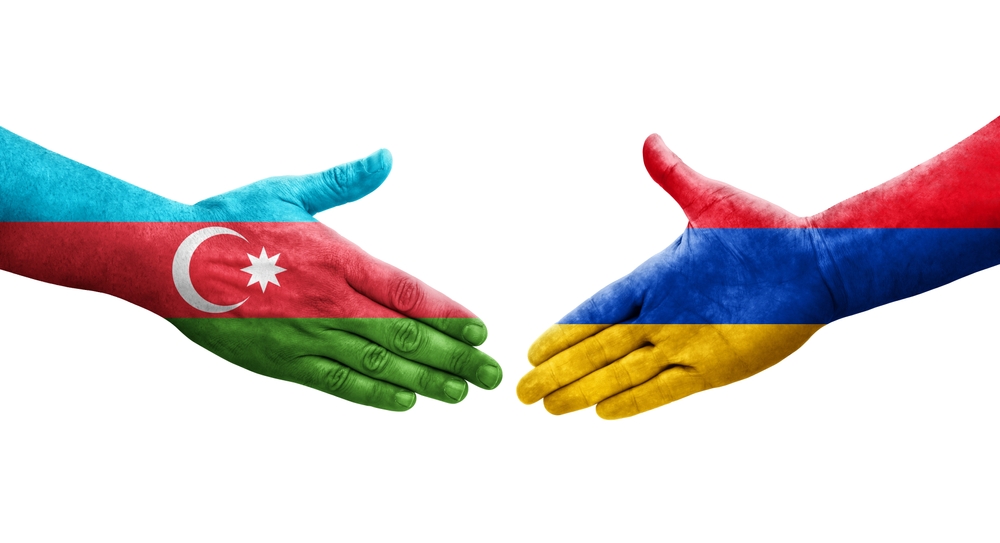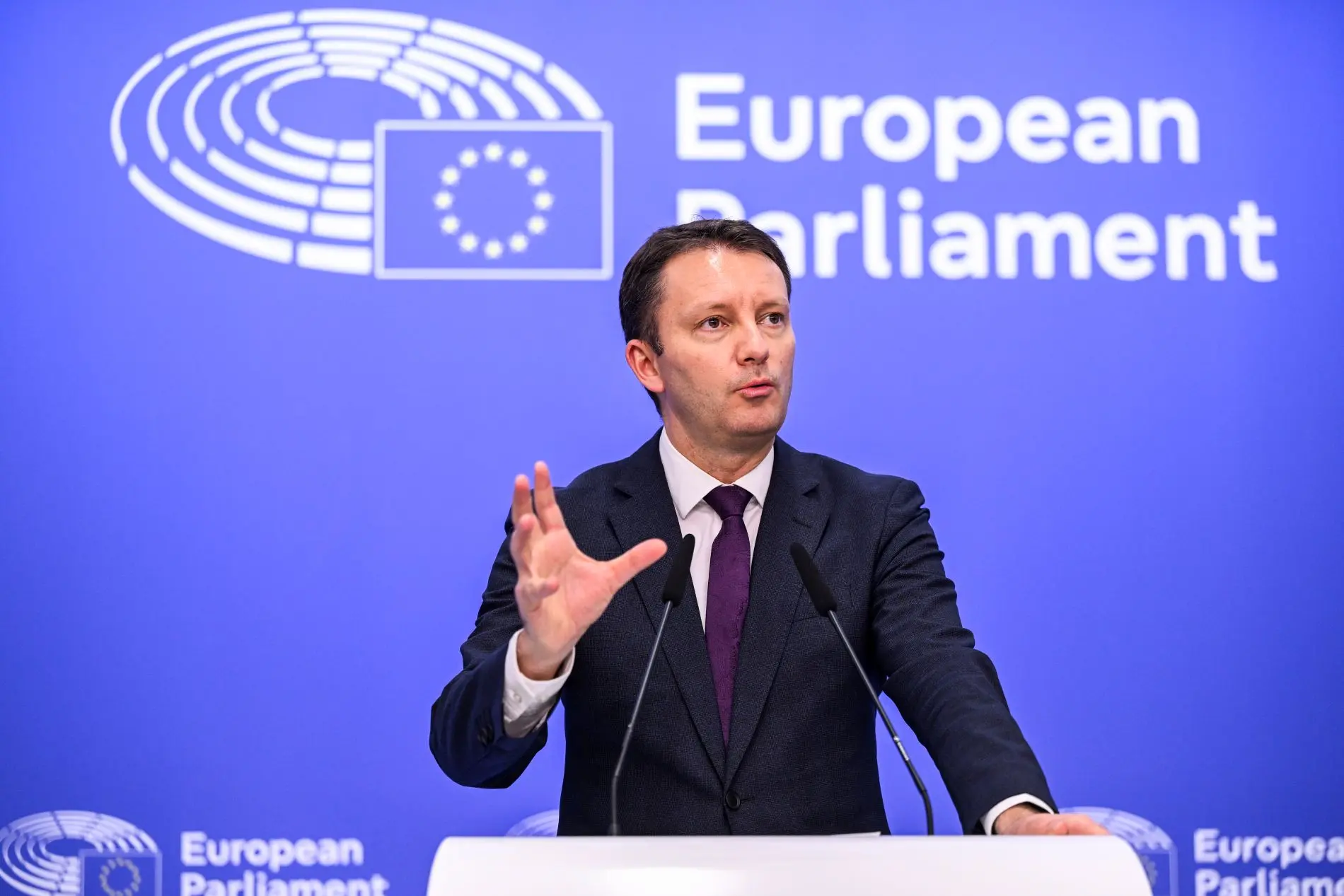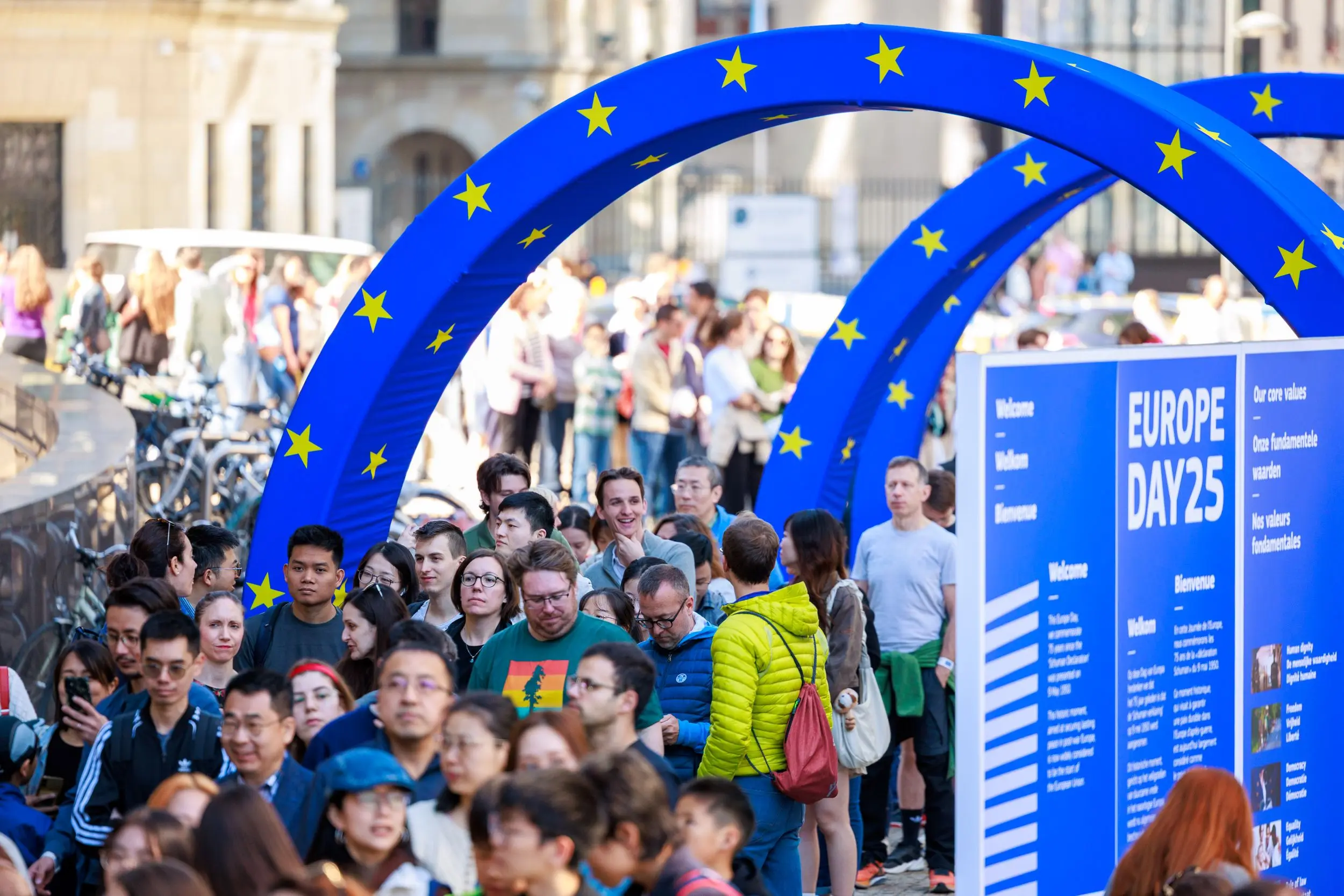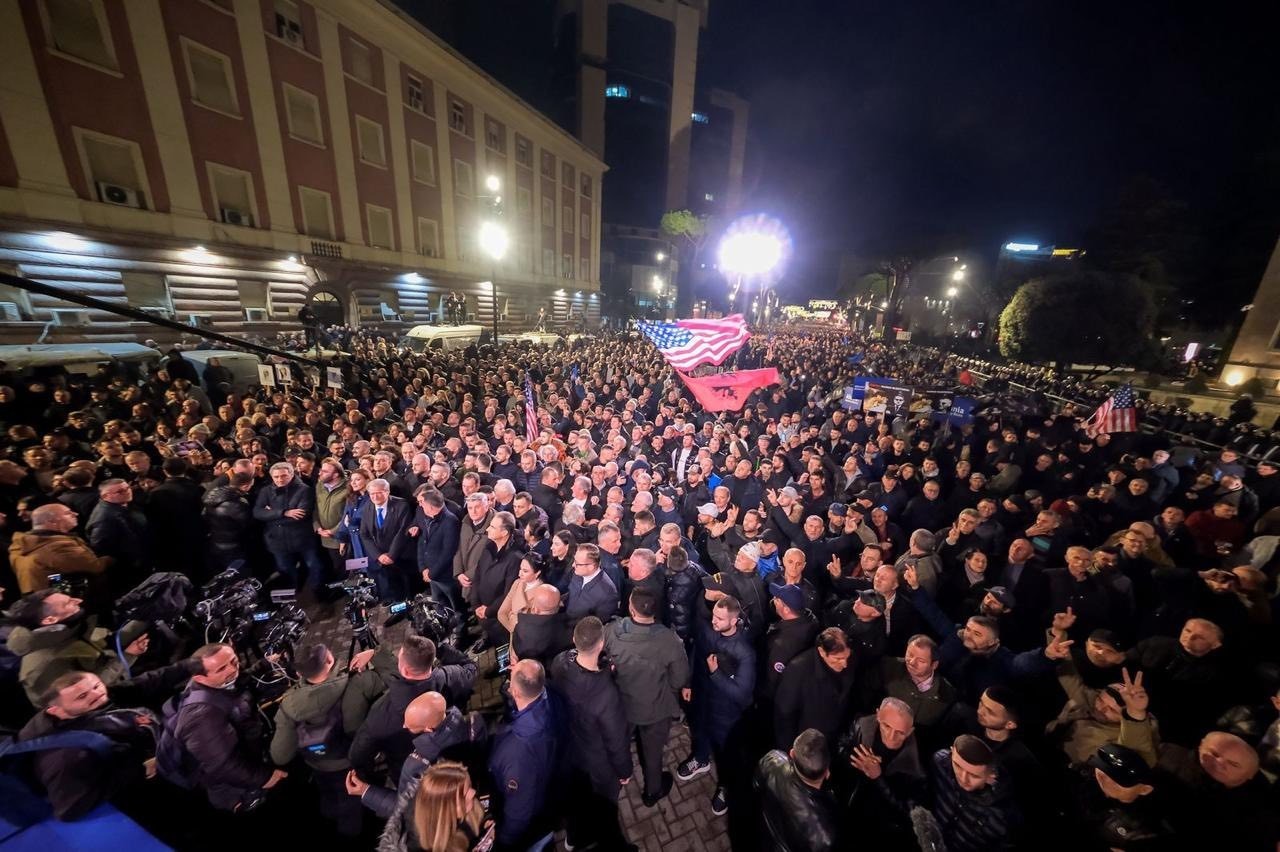Armenia and Azerbaijan, a rare declaration rekindles hopes for peace
Armenia and Azerbaijan issued a late-night joint statement that surprised even the most seasoned of commentators. Though it remains unclear whether this could be a long-awaited breakthrough in negotiations, the international community was united in welcoming the move

Armenia-and-Azerbaijan-a-rare-declaration-rekindles-hopes-for-peace
© Prehistorik/Shutterstock
Despite concerns that even a framework agreement to normalise relations between Armenia and Azerbaijan would not come by the end of this year, an unexpected joint statement issued by Baku and Yerevan late last Thursday, 7 December, has sparked optimism that this could still happen. The two countries fought a devastating 44-day war three years ago, but a peace deal has so far remained elusive.
Though joint statements are not new, they had always been issued as part of trilateral talks either facilitated or mediated by Russian President Vladimir Putin or European Council President Charles Michel. This time, however, the statement was issued bilaterally by the Armenian Prime Minister’s Office and the Azerbaijani Presidential Administration with no third-party involved.
The development is particularly significant given the impasse in the Michel-facilitated Brussels Process, with Azerbaijani President Ilham Aliyev pulling out of EU-mediated talks in Granada and Brussels in October, and Yerevan rejecting offers of Russian-hosted talks as Armenian Prime Minister Nikol Pashinyan increasingly turns westwards.
Even more confident following its victory over ethnic Armenian forces in Karabakh that resulted in the exodus of just over 100,000 of its residents to Armenia, Baku considers that the EU is increasingly siding with Yerevan by supplying the latter with albeit modest non-offensive military support in addition to the Common Security and Defence Policy (CSDP) EUMA mission deployed on its border since February.
Indeed, on an 8 October visit to Tbilisi , Aliyev had suggested that it is now time for Armenia and Azerbaijan to negotiate either bilaterally in a third country such as Georgia or on their shared border. This came to a head when Azerbaijan also cancelled planned talks scheduled to be held between the two foreign ministers in Washington DC on 20 November.
On the same day, Baku again invited Yerevan to engage bilaterally with no intermediaries. The next, apparently taken unawares, Deputy Prime Minister Mher Grigoryan suggested that commissions from both countries would meet on the border. Azerbaijan agreed, though the meeting on 30 November lasted three hours with no reported outcome other than the plan to meet again.
Last week’s joint statement, however, was different as it involved the administrations of the Armenian Prime Minister and Azerbaijani President, apparently alone. Baku would release 32 Armenian captives, Yerevan would release 2 Azerbaijani detainees, and the parties would support each other in the international arena.
“As a sign of good gesture, the Republic of Armenia supports the bid of the Republic of Azerbaijan to host the 29th Session of the Conference of Parties (COP29) to the UN Framework Convention on Climate Change, by withdrawing its own candidacy”, the joint statement read in what was arguably an unprecedented announcement. The following day, the international reaction was overwhelmingly positive.
“Establishing and deepening bilateral dialogue between sides has been a key objective of the EU-led Brussels process: today’s progress is a key step. I now encourage the leaders to finalise the Armenia-Azerbaijan peace deal ASAP”, Charles Michel posted on X .
In Azerbaijan, the bilateral nature of the agreement was widely celebrated though Armenian analysts were either dismissive or mainly silent, fearful that it could also represent a shift away from either the Brussels format, US-facilitated bilateral talks between the Foreign Ministers, or both. Some in Yerevan, however, suggested that Georgia might have mediated with the US to help finalise the agreement.
Yet, the day after the statement, MP Sargis Khandanyan, Chair of the Foreign Relations Committee, rejected such suggestions, repeating that the process was bilateral without intermediaries, though adding that, while its significance should not be underrated, it should not be overestimated either. He also said that the exchange of prisoners would occur in “hours or days”.
At time of publication, however, there has been no news of those prisoners being released.
Nonetheless, until it becomes known whether Armenia and Azerbaijan will return to bilateral or trilateral talks, the joint statement has at least encouraged those hopeful for an agreement to come soon. For now, that remains unclear. Speaking on Armenian Public TV on Saturday, Security Council Secretary Armen Grigoryan could only say that a deal could come “by the end of the year… or as soon as possible”. The same was expected at the end of last year.
Armenia and Azerbaijan, a rare declaration rekindles hopes for peace
Armenia and Azerbaijan issued a late-night joint statement that surprised even the most seasoned of commentators. Though it remains unclear whether this could be a long-awaited breakthrough in negotiations, the international community was united in welcoming the move

Armenia-and-Azerbaijan-a-rare-declaration-rekindles-hopes-for-peace
© Prehistorik/Shutterstock
Despite concerns that even a framework agreement to normalise relations between Armenia and Azerbaijan would not come by the end of this year, an unexpected joint statement issued by Baku and Yerevan late last Thursday, 7 December, has sparked optimism that this could still happen. The two countries fought a devastating 44-day war three years ago, but a peace deal has so far remained elusive.
Though joint statements are not new, they had always been issued as part of trilateral talks either facilitated or mediated by Russian President Vladimir Putin or European Council President Charles Michel. This time, however, the statement was issued bilaterally by the Armenian Prime Minister’s Office and the Azerbaijani Presidential Administration with no third-party involved.
The development is particularly significant given the impasse in the Michel-facilitated Brussels Process, with Azerbaijani President Ilham Aliyev pulling out of EU-mediated talks in Granada and Brussels in October, and Yerevan rejecting offers of Russian-hosted talks as Armenian Prime Minister Nikol Pashinyan increasingly turns westwards.
Even more confident following its victory over ethnic Armenian forces in Karabakh that resulted in the exodus of just over 100,000 of its residents to Armenia, Baku considers that the EU is increasingly siding with Yerevan by supplying the latter with albeit modest non-offensive military support in addition to the Common Security and Defence Policy (CSDP) EUMA mission deployed on its border since February.
Indeed, on an 8 October visit to Tbilisi , Aliyev had suggested that it is now time for Armenia and Azerbaijan to negotiate either bilaterally in a third country such as Georgia or on their shared border. This came to a head when Azerbaijan also cancelled planned talks scheduled to be held between the two foreign ministers in Washington DC on 20 November.
On the same day, Baku again invited Yerevan to engage bilaterally with no intermediaries. The next, apparently taken unawares, Deputy Prime Minister Mher Grigoryan suggested that commissions from both countries would meet on the border. Azerbaijan agreed, though the meeting on 30 November lasted three hours with no reported outcome other than the plan to meet again.
Last week’s joint statement, however, was different as it involved the administrations of the Armenian Prime Minister and Azerbaijani President, apparently alone. Baku would release 32 Armenian captives, Yerevan would release 2 Azerbaijani detainees, and the parties would support each other in the international arena.
“As a sign of good gesture, the Republic of Armenia supports the bid of the Republic of Azerbaijan to host the 29th Session of the Conference of Parties (COP29) to the UN Framework Convention on Climate Change, by withdrawing its own candidacy”, the joint statement read in what was arguably an unprecedented announcement. The following day, the international reaction was overwhelmingly positive.
“Establishing and deepening bilateral dialogue between sides has been a key objective of the EU-led Brussels process: today’s progress is a key step. I now encourage the leaders to finalise the Armenia-Azerbaijan peace deal ASAP”, Charles Michel posted on X .
In Azerbaijan, the bilateral nature of the agreement was widely celebrated though Armenian analysts were either dismissive or mainly silent, fearful that it could also represent a shift away from either the Brussels format, US-facilitated bilateral talks between the Foreign Ministers, or both. Some in Yerevan, however, suggested that Georgia might have mediated with the US to help finalise the agreement.
Yet, the day after the statement, MP Sargis Khandanyan, Chair of the Foreign Relations Committee, rejected such suggestions, repeating that the process was bilateral without intermediaries, though adding that, while its significance should not be underrated, it should not be overestimated either. He also said that the exchange of prisoners would occur in “hours or days”.
At time of publication, however, there has been no news of those prisoners being released.
Nonetheless, until it becomes known whether Armenia and Azerbaijan will return to bilateral or trilateral talks, the joint statement has at least encouraged those hopeful for an agreement to come soon. For now, that remains unclear. Speaking on Armenian Public TV on Saturday, Security Council Secretary Armen Grigoryan could only say that a deal could come “by the end of the year… or as soon as possible”. The same was expected at the end of last year.











